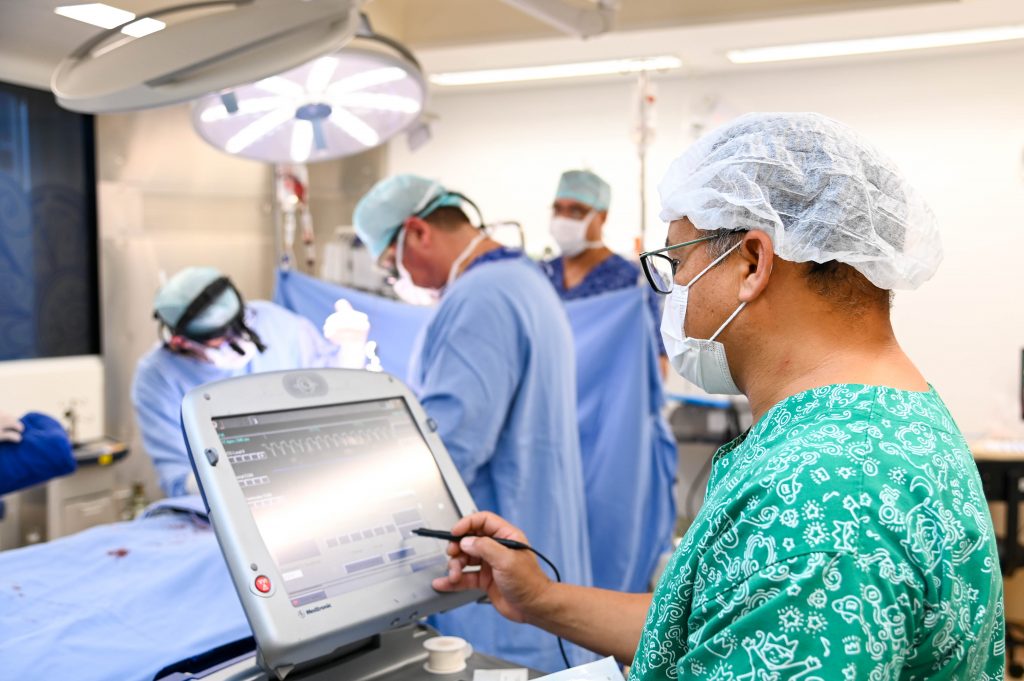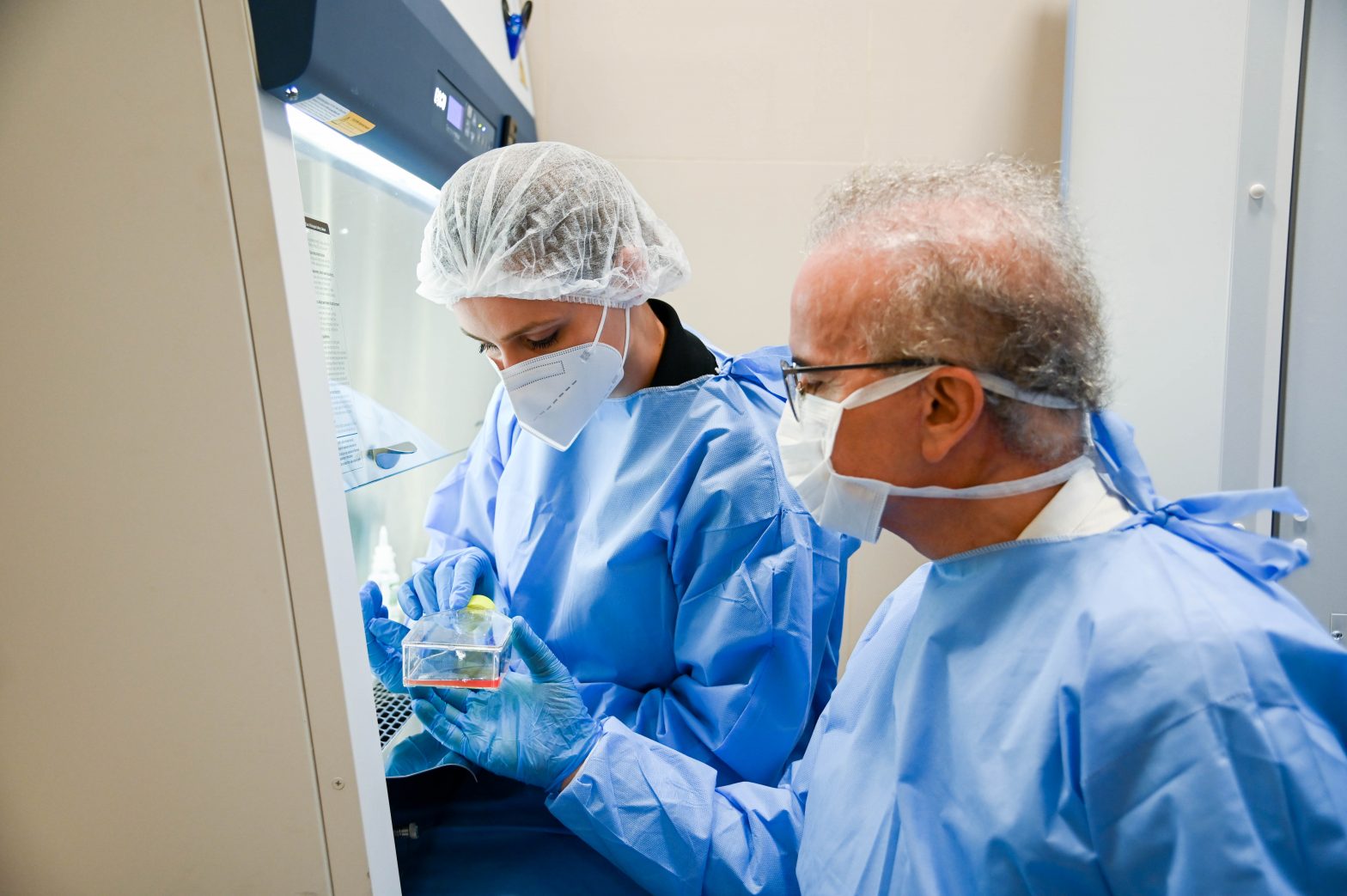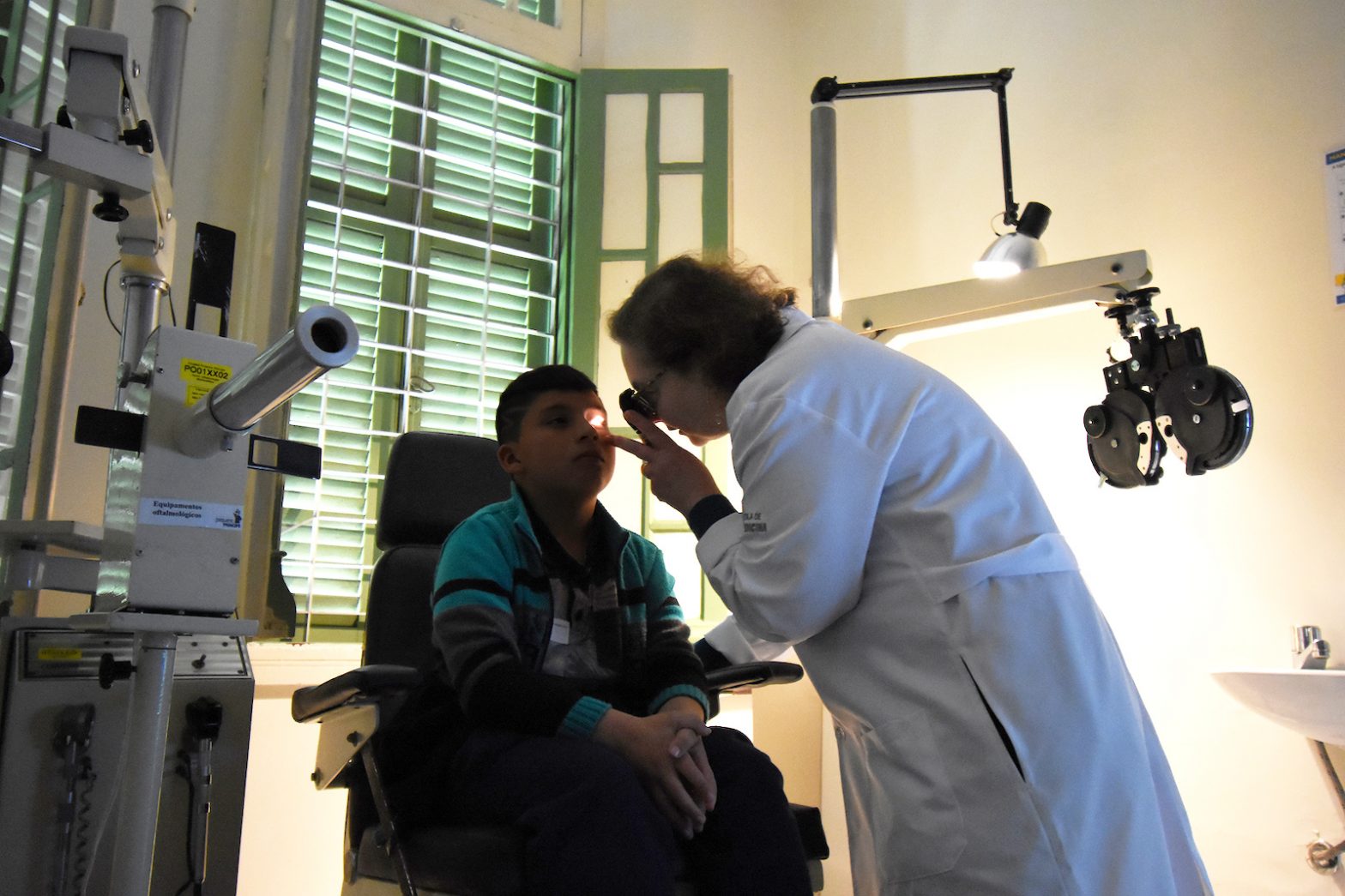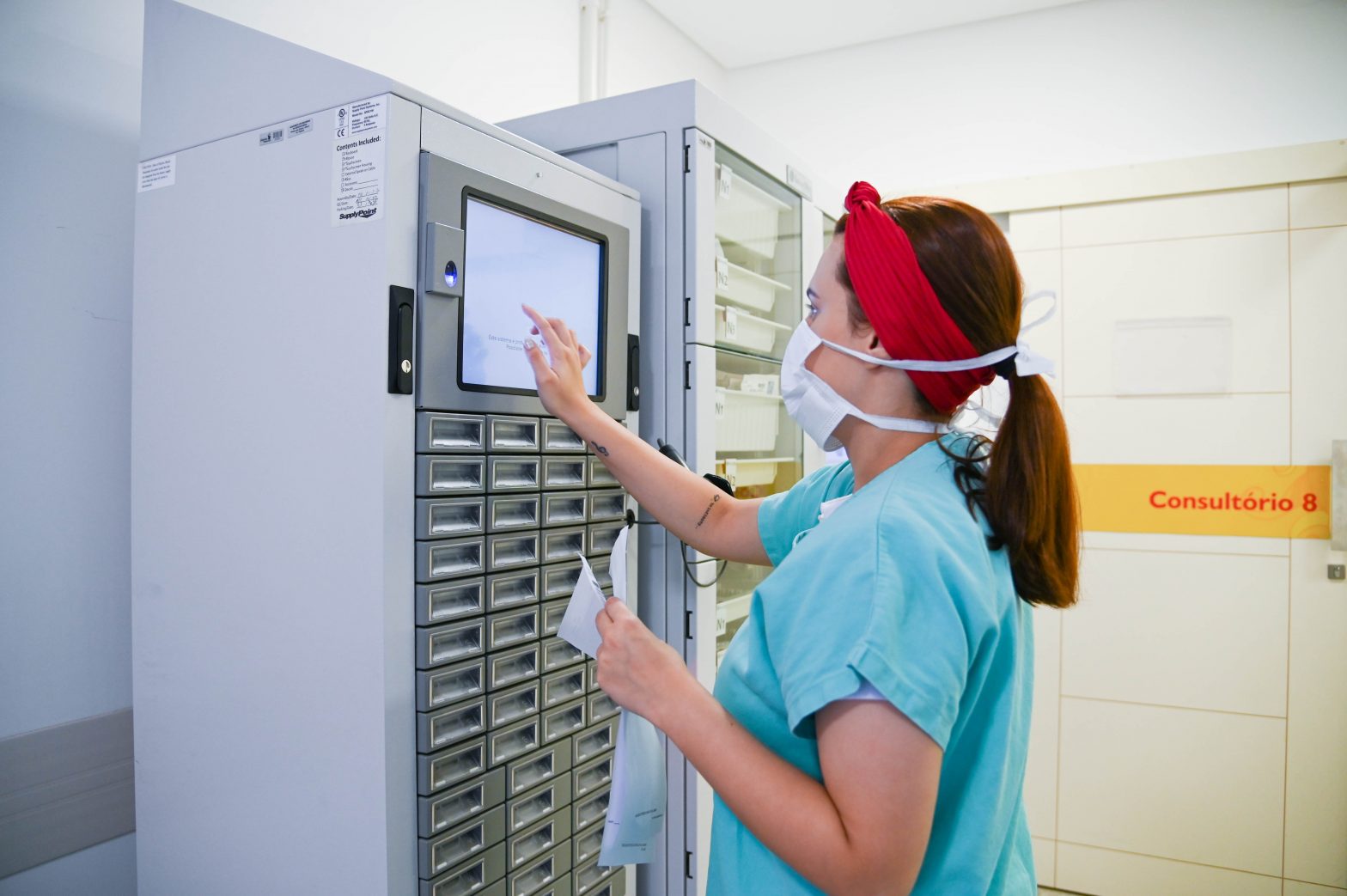Cardiovascular Surgery Service performs unprecedented procedure in Brazil
Implantation of a pacemaker with an envelope of antibiotics was carried out in December 2022, debuting the use of technology in the country

A technology available in the United States and in European countries was applied, for the first time in Brazil, by the Cardiovascular Surgery Service of Pequeno Príncipe Hospital last December, by indication of the Electrophysiology Service of the institution. It involves the use of an envelope of antibiotics that surrounds the pacemaker in order to avoid bacterial infections – one of the most feared complications associated with the use of this type of device. The envelope is placed during the surgical procedure, involving the generator, and the local release of antibiotics is immediately started. Then, over the course of days, the envelope is completely reabsorbed by the body, thus reducing the possibility of infection.
“Some procedures, medications, and patient characteristics significantly increase the risk of a device infection. And these infections increase morbidity, length of stay and surgical reintervention in these patients,” explains the cardiologist responsible for the innovation, Lânia Romanzin Xavier, who is head of the Pequeno Príncipe’s Electrophysiology Service.

That’s what happened to the patient Augusto Manenti Martins, diagnosed in 2010, at the age of 5, with a disease that compromises the correct functioning of the heart. To correct this situation, he had a pacemaker implanted and since then he has been regularly monitoring the Pequeno Príncipe service. “At the end of last year, at the age of 17, we discovered that one of the pacemaker electrodes had broken,” says the mother, Vivian Martins.
Augusto then underwent surgery to replace this electrode, but the following day the electrode was dislodged, which led the team to recommend a new surgery. “The doctors told us about this new cover that involves the device in the antibiotic, and we authorized the procedure, even though it is unprecedented in Brazil. The team showed us studies that attested to the efficiency of this procedure. And it was really a success. He didn’t have any fever peaks in the postoperative period, no intercurrences caused by infection,” reports the mother.

Another great benefit of this new procedure, according to the doctor, is the impact it has on service management. The patient who has an infection is hospitalized, on average, three weeks longer. Treatment costs also rise, as it is necessary to submit the patient to surgery to remove the pacemaker, wait for the infection to be controlled, and then perform a new surgery and implant a new device. And the greatest impact in the whole process is that the patient and the family is relieved from further moments of concern and suffering.
In 2022, the Pequeno Príncipe Cardiovascular Surgery Service, in partnership with the Electrophysiology Service, implanted 29 pacemakers and changed the battery of 14 pacemakers implanted previously.
“If Augusto is here today, aged 17, it is thanks to the competence of the entire medical team and the entire structure of Pequeno Príncipe. All professionals – doctors, nurses, ICU staff, cleaning staff, in short, everyone – are extremely humane people, good-natured and dedicated to taking care of our greatest good. And I can only thank this institution,” concludes Vivian.
More
Purchased with funds from Gala, equipment contributes to oncological research
Biological safety cabin allows the manipulation of human cells and tissues, helping in research that seeks new treatments
Research investigates different aspects of blindness and low vision
The goal is to improve the quality of life and treatments aimed at visual impairment, which is the most prevalent in Brazil
Electronic drug dispensers optimize care
The storage equipment for medicines and materials for health assistance helps to improve patient safety and the professional performance









